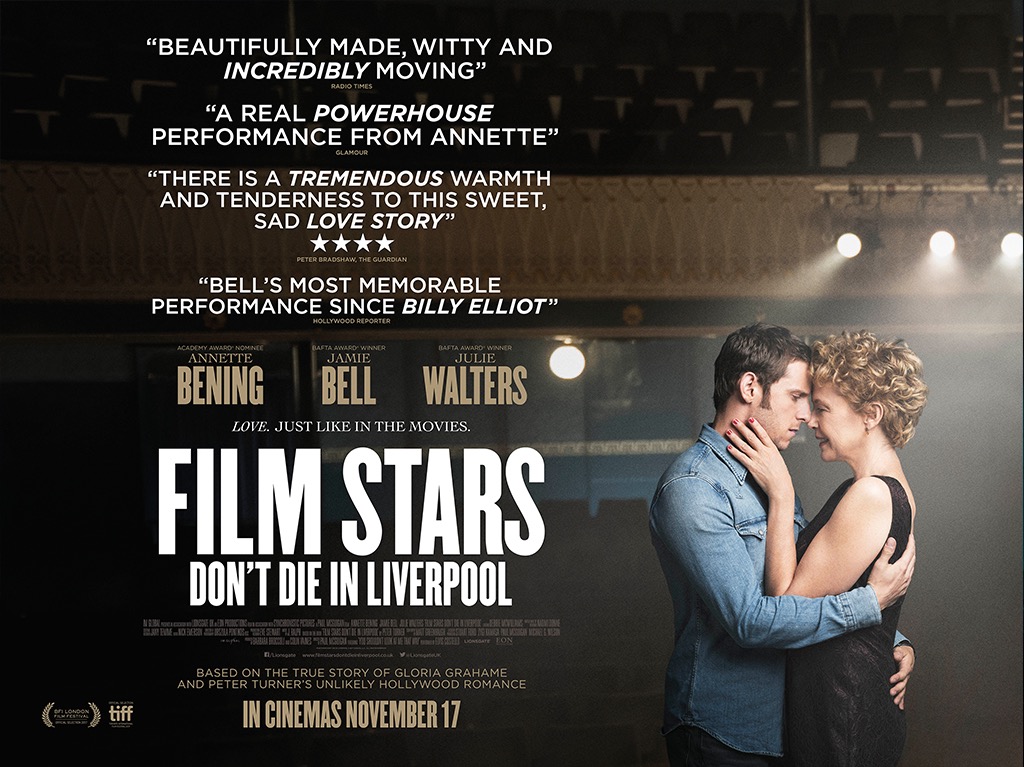Gloria Grahame
Gloria Grahame was one of the leading stars of Hollywood’s film noir era. With a film career that spanned the 1940s to the 1970s, she enjoyed commercial and critical success for her varied roles, including the seductive Violet Bick in It’s A Wonderful Life (1946), her Oscar-nominated role as Ginny Tremaine in Crossfire (1947), headstrong neighbour Laurel Gary in In A Lonely Place (1950) and the shallow Rosemary Bartlow in The Bad and The Beautiful (1957), the latter of which earned her an Academy Award win.
In 1974, Gloria had been diagnosed with breast cancer. Following successful treatment, the cancer went into remission.
By 1978, she had relocated to Liverpool to work on a play, co-habiting with a young man named Peter Turner, who was just 26-years-old. It was Turner with whom she formed an unlikely romance and ended up having a relationship with him that lasted until the end of her life.
Grahame was 57 when she died in October 1981.
Film Stars Don’t Die In Liverpool
An adaptation of Peter Turner’s book of the same title, the film covers the final two years of Grahame’s life, spent largely in Liverpool, and less so in Manhattan, as she played out this romantic relationship with Turner. It is at turns baffling and equally heartbreaking that a woman who had once lived next door to Lauren Becall and Humphrey Bogart would end her life in a small council house in Liverpool, far from the glamorous life she so obviously thrived on in her earlier years.
One of the most important aspects of a believable romantic film is the chemistry between those portraying the central characters. Jamie Bell and Annette Bening have it in buckets, never once failing to be brilliantly convincing. Whether it’s the scene in which she spontaneously instigates a spot of disco dancing in her spacious flat, or casually and flintily orders a pint at the local pub as though it’s the most natural thing in the world, it is clear the are completely at ease with one another.

Benning paints a frustrated picture of Grahame. Her angry response at Turner suggesting she is older than she believed she was is jarring and unexpected and reveals a lot about her character. She may have delivered a memorably-celebrated performance as Ado Annie in the blockbuster musical Oklahoma! in 1955, but she felt too old for the part even at the age of 32 (the part typically demands an actress around ten years younger than this’d she was just two years younger than James Whitmore who portrayed her fathering the film). Her continued desire to have relationships with younger men may be viewed as untoward in the current climate, but it was perhaps indicative that she simply saw herself as younger than she was and unable to accept that she was ageing.
But this is a subtle and developing romance. Peter enters the relation naively, discovering more about the woman he loves as time progresses. There’s a memorable scene where he goes to watch a Grahame picture at a retrospective at a local arthouse cinema, which reveals to him just how successful she was. Later on, the heartbreaking scene as she reads Shakespeare on an empty stage with Turner – thus fulfilling a lifelong dream – is one that really packs an emotional punch.
The attention to detail on the scenery and props is exemplary, invoking the 1980s era perfectly. It’s easy to portray a caricature of the 1980s in anything set there, but this feels as miserable and as outdated as you’d expect a port town in 1981 to feel.
The soundtrack goes some way to furthering this overall impression. Tracks from Elvis Costello, A Taste of Honey and Elton John add to the sense of the age. There is also a beautifully wistful new composition from Elvis Costello titled “You Shouldn’t Look At Me That Way”, which is surely a strong contender for an Oscar nomination this year.
Film Stars Don’t Die In Liverpool is a beautiful and heartbreaking film with some strong performances and a final result that makes it one of the best dramas of the year.
